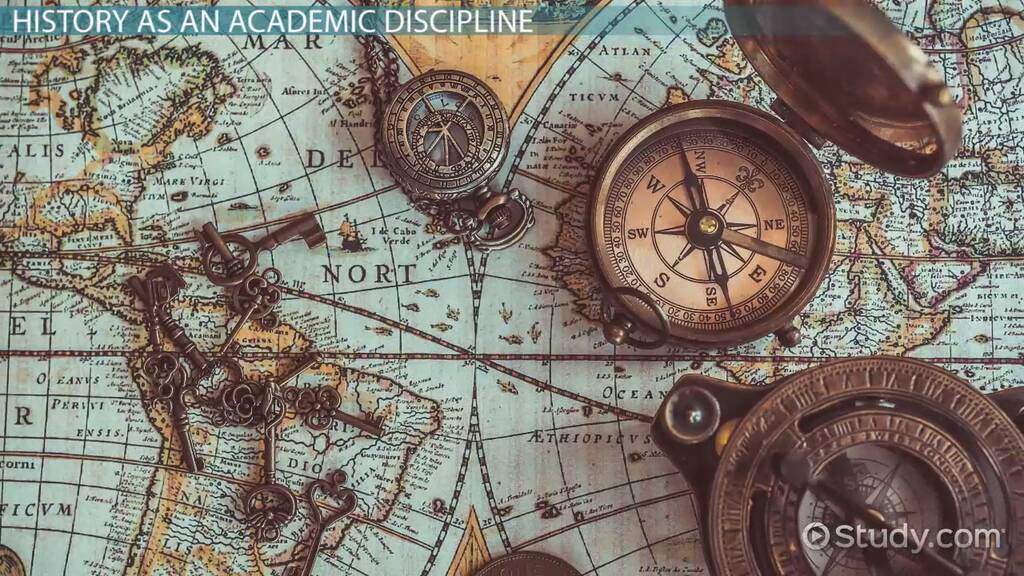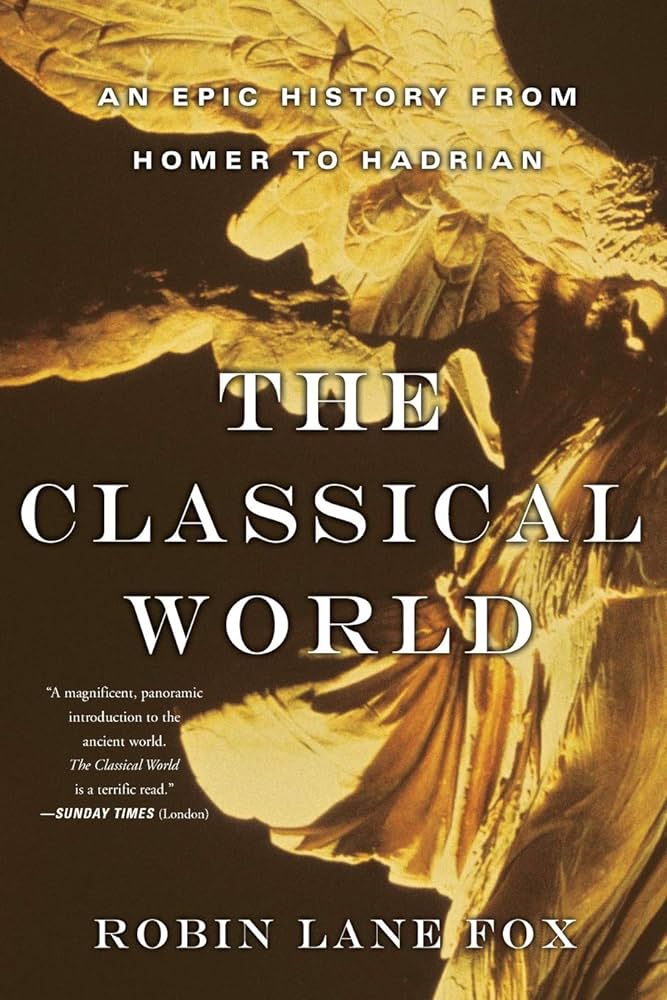Rise Of Early World History As An Academic Discipline
The rise of early world history as an academic discipline traces its roots back to the late 19th century, when scholars began to explore the connections between different civilizations and cultures. This was a revolutionary shift from the previous focus on the history of a single nation or region. Early world history as an academic discipline has grown in popularity since then, with more and more universities and colleges offering courses and departments devoted to it. The current academic approach to studying early world history is largely interdisciplinary, with a focus on the connections between different societies, their politics and economies, and their cultural and religious beliefs. Furthermore, it seeks to understand the dynamics of power and cultural exchange in different parts of the world, as well as to investigate the causes of global events and trends. This approach has been immensely influential in understanding our current world and has had a profound impact on our understanding of our collective past.
Origin of Early World History as an Academic Discipline
The academic study of early world history has been gaining traction in recent years, as scholars, educators, and students alike have come to recognize its immense value. As an understanding of the ancient world becomes more and more important, the need to understand the historical context of the time period becomes increasingly acute. The study of early world history can provide invaluable insights into the political, social, economic, and cultural development of civilizations throughout history.
Early world history as an academic discipline has its roots in ancient Greece and Rome, where historians such as Herodotus and Thucydides wrote about the history of their respective cultures. The emergence of the modern academic discipline of early world history is largely attributed to the work of 19th-century German scholars such as Leopold Ranke, who sought to document the history of the world from a global perspective.
In the 20th century, early world history began to be studied in greater depth, with the emergence of more holistic approaches to understanding the past. Scholars began to look beyond the traditional narrative of great figures and their deeds, to explore the underlying social, economic, and cultural forces that shaped the world. This approach allowed for a more nuanced understanding of history, and helped to open up the field to a broader set of perspectives.
Today, early world history continues to be studied in a variety of contexts, from archaeological research to the study of written documents and artifacts. The field has also been enriched by the emergence of new digital tools and resources, which allow scholars to explore the past in unprecedented detail. As the study of early world history continues to evolve, it promises to provide insights into the development of our world throughout history.
The Development of Early World History
The study of Early World History has been a major focus in the academic world for centuries. This field of study has been fundamental in the development of our understanding of the ancient world and its civilizations. From the earliest records of humanity, to the complex societies of the ancient Near East, to the classical civilizations of Greece and Rome, Early World History offers a comprehensive view of human history. This field of study is essential for understanding the development of human societies, their cultures, and their interactions.
In recent years, Early World History has experienced a resurgence in popularity. Scholars have used new methods and approaches to explore the past, providing a deeper understanding of the ancient world. By examining ancient sources and artifacts, scholars can gain insight into the beliefs, values, and practices of past civilizations. Furthermore, the study of Early World History can provide a context for understanding the development of modern societies.
The rise of Early World History as an academic discipline has been recognized by many institutions of higher learning. Universities and colleges across the world offer courses in this field, providing students with a comprehensive understanding of this important field of study. Furthermore, a number of professional organizations exist to support the study of Early World History. These organizations offer a range of resources, including conferences, publications, and grant opportunities.
In conclusion, the study of Early World History is an essential tool for understanding the development of societies and cultures. Through the use of new methods and approaches, scholars are able to gain a better understanding of the ancient world. Furthermore, institutions of higher learning and professional organizations offer resources and support to those interested in the study of Early World History.
Different Approaches to Early World History
The field of early world history is rapidly expanding as a scholarly discipline. As its popularity grows, so too does the range of approaches used to study it. From the traditional focus on archaeological and textual evidence to the newer emphasis on interdisciplinary and global perspectives, researchers are increasingly exploring new ways of looking at the past.
The study of early world history can be approached from a range of perspectives. Archaeologists use material evidence to reconstruct past societies, while historians use written sources to examine political, social, and religious developments. Anthropologists, sociologists, and linguists, meanwhile, use ethnographic and linguistic evidence to analyze cultural practices.
In addition to the traditional disciplines, more interdisciplinary and global approaches are being taken. Scholars are exploring how different societies interacted with each other, as well as looking at the impact of environmental, economic, and social factors on the development of cultures. As a result, early world history is becoming increasingly complex, taking into account a wide range of perspectives and sources.
In short, the study of early world history is becoming increasingly sophisticated and multi-faceted. By incorporating multiple disciplines and global perspectives, researchers are gaining new insights into the past and uncovering the complexities of the ancient world.

Significance of Early World History
The study of Early World History has become increasingly important in the modern academic environment. As the world becomes ever more interconnected, it is becoming ever more important to have an understanding of the events and processes that have shaped our societies and our world.
Early World History is a vast discipline that encompasses the study of early societies, their cultures, their technologies, and their interactions with each other. It is a study of humanity’s collective history, from the earliest known societies to the formation of the modern world.
The importance of Early World History is based on its ability to shed light on the past, and to provide us with insights into the present. It can help us better understand our place in the world, and how our own history has shaped our current society. It can also provide us with a greater understanding of the forces that have shaped our societies and our world.
Early World History provides us with a better understanding of our global society and the forces that have shaped it. It can help to inform our decisions and our actions, and allow us to better understand our place in the world. As such, it is an essential academic discipline that no student of the modern world should be without.
Challenges Facing Early World History
The idea of early world history as an academic discipline is one that is gaining traction in the modern world. However, the challenges it faces are numerous. Firstly, the lack of reliable sources and evidence makes it difficult to accurately reconstruct the past. Secondly, the interpretation of historical events is often subjective and open to debate. Thirdly, the vast geographical and chronological scope of early world history requires scholars to possess deep knowledge and expertise in multiple disciplines. Moreover, the recent emergence of globalized studies has led to a further fragmentation of the traditionally accepted view of the early world. As a result, scholars must be prepared to question, analyze, and challenge existing perceptions and knowledge. Finally, the rise of digital technology and the availability of online resources have made it difficult for scholars to access primary sources, and to determine the authenticity and accuracy of information. These challenges demonstrate the complexity and dynamism of early world history as an academic discipline and underscore the need for further research.
Future of Early World History
As one of the oldest academic disciplines, Early World History has been studied by scholars for centuries. With the rise of digital technology, the field of Early World History has grown exponentially in recent years. This growth has allowed for a deeper understanding of the past, and new insights into how cultures evolved and interacted throughout history.
Though the field of Early World History continues to expand, there is still much to be learned. The ability to access and analyze data from archaeological sites, ancient texts, and other sources has enabled researchers to gain new insights into the development of early civilizations. Moreover, digital technologies are allowing scholars to create 3D models of sites and even explore them virtually.
The future of Early World History looks bright. With new technological advancements, researchers are able to explore and discover new facts about the past. In addition, digital technology is allowing researchers to collaborate more easily and share data and information across different disciplines.
As we move forward, Early World History will continue to be an important field of study. By combining traditional research methods with modern technology, we can continue to learn more about the past and gain greater insight into how our world has evolved over time.
FAQs About the Rise Of Early World History As An Academic Discipline
1. How did early world history become an academic discipline?
Answer: Early world history as an academic discipline emerged in the late 19th and early 20th centuries in response to new forms of imperialism and colonialism. The development of new methods of research, such as comparative studies across different cultures and regions, allowed scholars to study global history in a more comprehensive way.
2. What are the primary sources used for studying early world history?
Answer: Primary sources for studying early world history include archaeological evidence, written records, artwork, oral traditions, and artifacts. These sources can help scholars understand how people lived in the past and how societies developed over time.
3. What topics are studied in early world history?
Answer: Early world history covers a wide range of topics, such as the development of early civilizations, the rise and fall of empires, the spread of religions and philosophies, and the development of trade and commerce. It also examines the impact of colonialism and imperialism on different regions and cultures around the world.
Conclusion
The rise of early world history as an academic discipline has been an exciting development in higher education. It has enabled researchers to gain a better understanding of the interconnectedness of human history and to better appreciate the history of global cultures. By examining the past from a global perspective, scholars can better understand the current state of the world and the challenges of the future. As a result, early world history has become an essential component of the modern study of history. Through rigorous research, teaching, and critical thinking, early world history continues to help shape our understanding of the world today.




